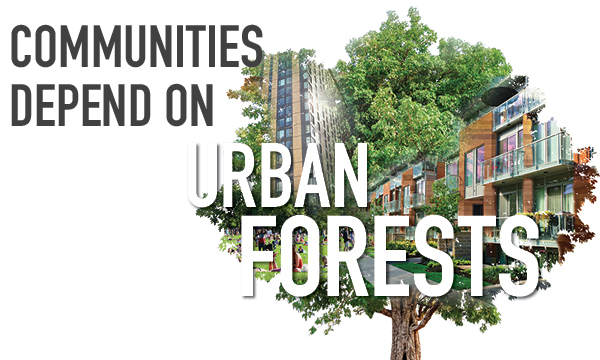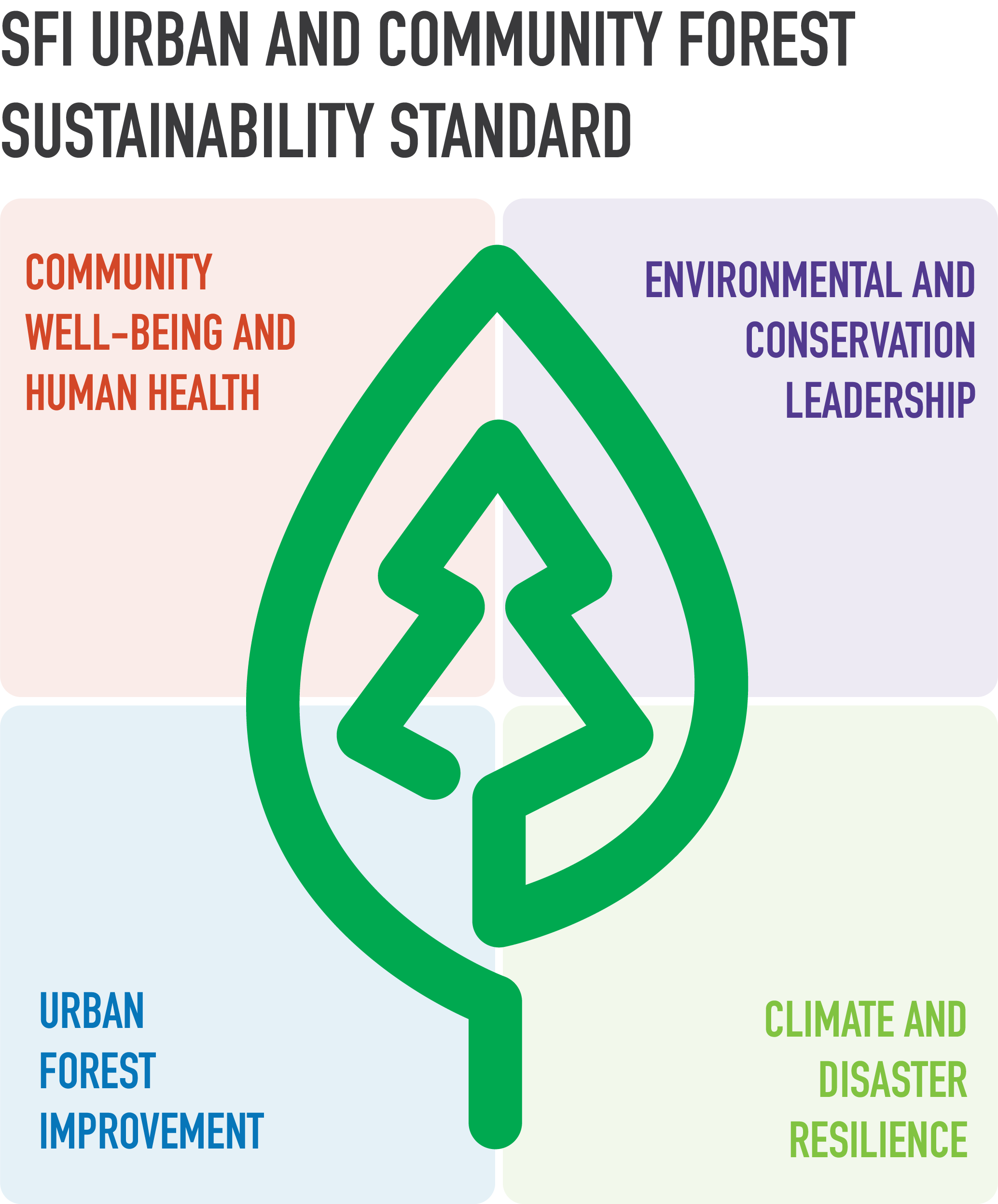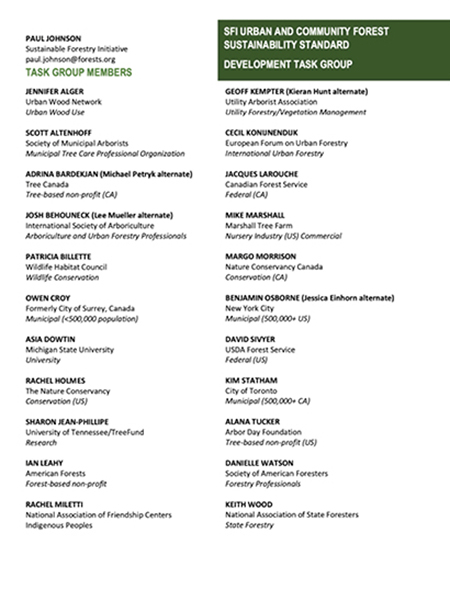THEMATIC THIRD-PARTY CERTIFICATION UNDER THE SFI URBAN AND COMMUNITY FOREST SUSTAINABILITY STANDARD
The Sustainable Forestry Initiative recognizes that many organizations in urban and community forestry don’t have the resources necessary for third-party certification to the full Urban and Community Forest Sustainability Standard (UCFSS).


The thematic certification is an important means of increasing accessibility and engagement with the urban and community forestry sector. By recognizing organizations that meet a subset of the Standard, we will be able to broaden the SFI Community and help achieve our diversity, equity, inclusion, and belonging goals, including Priority 9 in the SFI 2020-2024 strategic plan: “Grow meaningful relationships with Indigenous, Black, urban, and underrepresented communities to advance social, economic, and environmental opportunities.”
The four themes are:
Community Well-Being and Human Health
(a total of 30 indicators)
- Objective 1. Community, People, and Indigenous Rights
- Objective 2. Human Health and Well-Being
- Objective 13. Communications
- Objective 15. Legal and Regulatory Compliance, and
- Objective 16. Reporting
Environmental and Conservation Leadership
(38 indicators)
- Objective 3. Protection and Conservation of Biodiversity
- Objective 4. Stewardship of Natural Resources
- Objective 5. Forest and Tree Health and Vitality
- Objective 6. Special Sites including Natural Areas
- Objective 15. Legal and Regulatory Compliance, and
- Objective 16. Reporting
Climate and Disaster Resilience
(37 indicators)
- Objective 7. Climate Smart Management
- Objective 10. Disaster Readiness, Response, and Recovery
- Objective 12. Urban Wood Utilization
- Objective 14. Research, Science, and Technology
- Objective 15. Legal and Regulatory Compliance, and
- Objective 16. Reporting
Urban Forest Improvement
(44 indicators)
- Objective 8. Urban Forest Planning
- Objective 9. Management and Care of Urban Forests and Trees
- Objective 10. Disaster Readiness, Response, and Recovery
- Objective 11. Capacity Building
- Objective 15. Legal and Regulatory Compliance, and
- Objective 16. Reporting
SFI URBAN AND COMMUNITY FOREST SUSTAINABILITY STANDARD
SFI LAUNCHES PARTNERSHIP FOR URBAN AND COMMUNITY FORESTS
STANDARD DEVELOPMENT PROCESS
FACTS AND INFORMATION: SFI URBAN AND COMMUNITY FOREST SUSTAINABILITY STANDARD
Full SFI 2022 Standards and Rules Documentation
Major Enhancements in the SFI 2022 Standards
Transition to the SFI 2022 Standards and Rules
Guidance For SFI Urban and Community Forest Sustainability Standard
Meagan Hanna
Director of Urban and Community Forestry for Canada
Tel: 613-800-3074
Michael Martini
Director of Urban and Community Forestry for US
Tel: 202-918-4701
Gregor Macintosh
Senior Director, Standards
Tel: 778-351-3358
Rachel Dierolf
Director, Data Analytics and Reporting
Tel: 613-274-0124
Paul Johnson
VP, Urban and Community Forestry and Career Pathways
Tel: 202-719-1389 ext 473

